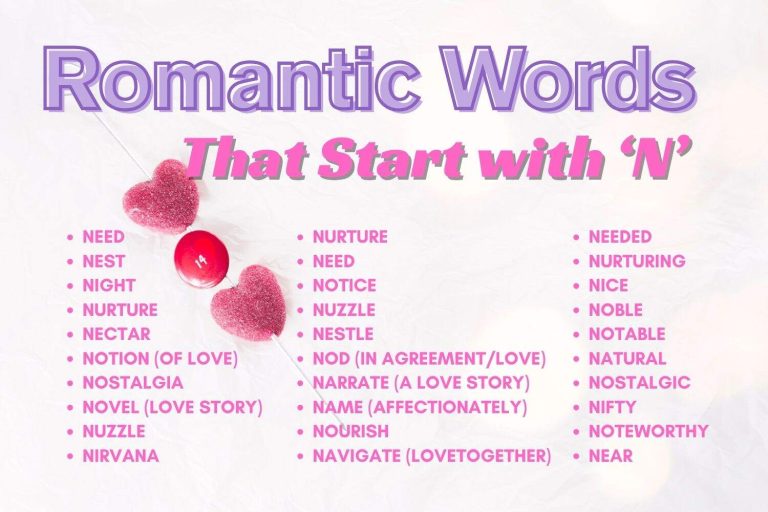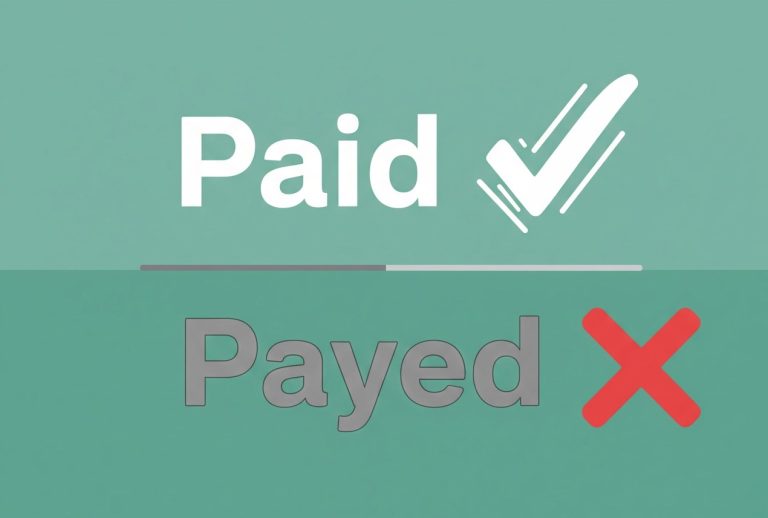50+ Idioms for “New”: Expanding Your English Vocabulary
The concept of “new” is all around us — from fresh starts and exciting experiences to innovative ideas and unfamiliar situations. And in the English language, we often express these ideas through colorful and creative idioms.
Instead of simply saying something is new, we might say it’s “a breath of fresh air” or “brand spanking new.” These idioms bring everyday language to life, helping us describe novelty, change, or beginnings with style and flair.
Idioms for “new” aren’t just fun to use — they also reflect how we think and feel about change, discovery, and fresh opportunities. Whether you’re talking about a new job, a new habit, or a new perspective, using idiomatic expressions can make your communication more engaging and natural.
Let’s dive into the world of “new” idioms and unlock their potential!
50 + Idioms for “New” with Examples
Idioms, by their nature, often defy standard grammatical rules. Their structure is fixed, meaning that the words cannot be changed or reordered without altering or destroying the idiom’s meaning.
Examples Related to Beginnings
The following table showcases idioms related to beginnings, demonstrating their meanings and usage with examples.
| Idiom | Definition | Example Sentence |
|---|---|---|
| A new chapter | A new phase or period in one’s life. | After retiring, she felt like she was starting a new chapter in her life. |
| A clean slate | A fresh start, free from past mistakes or problems. | The bankruptcy allowed him to start with a clean slate. |
| Turn over a new leaf | To change one’s behavior for the better. | He promised to turn over a new leaf and be a better husband. |
| New kid on the block | Someone who is new to a place or group. | As the new kid on the block, he felt a bit nervous at school. |
| Start from scratch | To begin something from the very beginning. | The business failed, so they had to start from scratch. |
| Fresh start | A new beginning, often after a difficult period. | Moving to a new city gave her a fresh start. |
| The dawn of a new era | The beginning of a significant period of change or development. | The invention of the internet marked the dawn of a new era in communication. |
| On the threshold of something new | About to experience something new or significant. | They were on the threshold of something new as they awaited the test results. |
| A new dawn | A beginning of something good or hopeful. | After the storm, it was like a new dawn had broken. |
| Break new ground | To do something that has never been done before. | Her research broke new ground in the field of medicine. |
| New blood | New people or ideas that bring fresh energy and innovation. | The company needed some new blood to revitalize its operations. |
| New horizons | New opportunities or experiences that broaden one’s perspective. | Traveling to different countries opened up new horizons for her. |
| A new lease on life | A renewed sense of energy, enthusiasm, or purpose. | After recovering from the illness, he felt like he had a new lease on life. |
| New broom sweeps clean | A new person in charge makes changes enthusiastically. | The new manager implemented many changes; a new broom sweeps clean, after all. |
| A new day | A chance to start over or make things better. | Every day is a new day to make a difference. |
| New beginnings | The start of something new. | The New Year is a time for new beginnings. |
| Crack of dawn | The very beginning of the day. | They woke up at the crack of dawn to catch the early flight. |
| From the ground up | From the very beginning, starting with nothing. | They built the company from the ground up. |
| At the outset | At the very beginning of something. | At the outset, the project seemed impossible. |
| In its infancy | In the early stages of development. | The technology is still in its infancy. |
| A new approach | A different way of doing something. | They decided to take a new approach to solving the problem. |
| On the horizon | Likely to happen or appear soon. | New opportunities are on the horizon. |
| New venture | A new project or business undertaking. | Starting a new venture can be exciting and challenging. |
Examples Related to Innovation and Freshness
The following table illustrates idioms related to innovation and freshness, providing their definitions and usage with examples.
| Idiom | Definition | Example Sentence |
|---|---|---|
| State-of-the-art | The latest and most advanced technology or design. | The new hospital is equipped with state-of-the-art medical equipment. |
| Cutting-edge | Extremely modern and advanced. | The company is known for its cutting-edge research and development. |
| The latest thing | The most recent or fashionable item or trend. | Everyone wants the latest thing in smartphones. |
| Ahead of the curve | Innovative and leading in a particular field. | The company is always ahead of the curve with its new products. |
| Next-generation | Relating to the next stage of development or improvement. | They are working on next-generation technology. |
| Fresh perspective | A new and innovative viewpoint. | A fresh perspective can help solve long-standing problems. |
| Novel approach | A new and original method or way of doing something. | They adopted a novel approach to marketing their product. |
| Newfangled | New and often unnecessarily complex or elaborate. | He doesn’t trust these newfangled gadgets. |
| Avant-garde | New, experimental, and unconventional. | The artist’s work was considered avant-garde for its time. |
| Innovative | Introducing new ideas or methods. | The company is known for its innovative solutions. |
| Original | Not copied or imitated; created for the first time. | The artist’s work was highly original. |
| Up-to-the-minute | The very latest; completely current. | She always has up-to-the-minute news. |
| Trendsetter | A person who starts new fashions or trends. | She is known as a trendsetter in the fashion industry. |
| Trailblazer | A pioneer or innovator. | He was a trailblazer in the field of computer science. |
| Pushing the envelope | Challenging the limits of what is possible. | The engineers are pushing the envelope with their new designs. |
| State-of-the-art technology | The most advanced technology available. | The lab is equipped with state-of-the-art technology. |
| Fresh off the boat | Newly arrived in a country or region. | He was fresh off the boat and still adjusting to the culture. |
| Emerging technology | Technology that is just beginning to develop or become known. | The conference focused on emerging technologies. |
| Groundbreaking | Innovative and pioneering. | The research was groundbreaking in its field. |
| Cutting-edge design | Extremely modern and advanced design. | The building features cutting-edge design. |
| New paradigm | A new way of thinking about something. | The internet created a new paradigm for communication. |
| Out of the box | Thinking differently and unconventionally. | They needed someone who could think out of the box. |
| Game changer | Something that significantly alters the current situation. | The new technology was a game changer for the industry. |
Examples Related to Inexperience
The subsequent table presents idioms related to inexperience, providing their definitions and usage with illustrative examples.
| Idiom | Definition | Example Sentence |
|---|---|---|
| Wet behind the ears | Young and inexperienced. | He’s still wet behind the ears, so don’t expect too much from him. |
| Greenhorn | A person who is new to or inexperienced in a particular activity or field. | The greenhorn made a lot of mistakes on his first day. |
| Newbie | A person who is new to a particular activity or field. | As a newbie, she was a bit overwhelmed by the complexity of the project. |
| Rookie | A first-year player in a professional sport or someone new to a job. | The rookie made an impressive debut in the game. |
| Learning the ropes | Getting acquainted with the procedures and practices of a new job or activity. | It takes time to learn the ropes in a new company. |
| A babe in the woods | An innocent and inexperienced person. | She was a babe in the woods when she first arrived in the city. |
| Just starting out | Beginning a career or activity. | He’s just starting out in the business world. |
| Inexperienced | Lacking knowledge or skill gained from practical experience. | The company is looking for someone who is not inexperienced for this role. |
| Unseasoned | Not fully trained or experienced. | The unseasoned crew struggled with the difficult task. |
| First-timer | Someone doing something for the first time. | She was a first-timer at the marathon. |
| New to the game | Someone who is new to a particular activity or situation. | He’s new to the game, so he needs some guidance. |
| Neophyte | A person who is new to a subject, skill, or belief. | The neophyte was eager to learn everything about the field. |
| Novice | A person new to or inexperienced in a field or situation. | The novice made several mistakes during the training. |
| Amateur | A person who engages in a pursuit, especially a sport, on an unpaid basis. | The amateur photographer took some stunning shots. |
| Untested | Not yet proven or evaluated. | The new strategy is still untested. |
| Beginner’s luck | Unexpected success experienced by a beginner. | He won the game due to beginner’s luck. |
| New at this | Recently started doing something. | I’m new at this, so please be patient. |
| Unfamiliar with | Not having knowledge or experience of something. | I’m unfamiliar with this software. |
| Out of one’s depth | In a situation that one cannot handle due to lack of experience or knowledge. | He felt out of his depth at the conference. |
| Not knowing the first thing | Having no knowledge or understanding of something. | She didn’t know the first thing about gardening. |
| Starting from square one | Starting from the beginning, with no progress made. | They had to start from square one after the project failed. |
| A blank slate | A mind or situation that is completely new and uninfluenced. | The student approached the subject with a blank slate. |
| In the dark | Uninformed about something. | They kept me in the dark about the changes. |
Examples Related to Renewal and Rebirth
The upcoming table presents idioms related to renewal and rebirth, providing their definitions and usage with examples.
| Idiom | Definition | Example Sentence |
|---|---|---|
| Second wind | A burst of energy after a period of fatigue or difficulty. | He got his second wind and finished the race strong. |
| Back on one’s feet | Recovering from a setback or illness. | He’s finally back on his feet after the surgery. |
| Reinvent oneself | To change one’s image, lifestyle, or career. | She decided to reinvent herself and start a new business. |
| Rise from the ashes | To recover from a devastating event or failure. | The company rose from the ashes after the bankruptcy. |
| A fresh start | A new beginning, often after a difficult period. | Moving to a new city gave her a fresh start. |
| Turn a new page | To start a new chapter or phase in life. | It’s time to turn a new page and move on. |
| Reborn | Given new life or vitality. | The city felt reborn after the renovations. |
| Resurrect | To bring back to life or revive. | They tried to resurrect the old tradition. |
| Spring back | To recover quickly from a setback. | The economy sprang back after the recession. |
| Renewed vigor | Increased energy and enthusiasm. | She approached the project with renewed vigor. |
| Rejuvenated | Feeling refreshed and energized. | After the vacation, he felt rejuvenated. |
| Revitalize | To give new life or energy to something. | The new policies revitalized the company. |
| Back to life | Revived or restored to a previous state. | The old house was brought back to life with the renovations. |
| Out with the old, in with the new | Replacing old things with new ones. | It’s time to declutter—out with the old, in with the new. |
| A new lease of life | An opportunity to live longer or better. | The transplant gave him a new lease of life. |
| Start afresh | To begin again with a clean slate. | After the mistake, they decided to start afresh. |
| Bounce back | To recover quickly from a difficulty. | She always manages to bounce back from setbacks. |
| Regain strength | To recover physical or emotional strength. | He needed time to regain his strength after the illness. |
| Reawaken | To awaken again; to revive. | The project reawakened his passion for art. |
| Reboot | To restart something, often a computer or system. | They decided to reboot the project with a new team. |
| Second chance | Another opportunity to try again. | Everyone deserves a second chance. |
| Begin again | To start over. | They decided to begin again after the failure. |
| A fresh start | A new beginning. | Moving to a new city gave her a fresh start. |
Usage Rules for “New” Idioms
Using idioms correctly requires careful attention to context, tone, and audience. Here are some general rules to follow when using “new” idioms:
- Understand the meaning: Make sure you fully understand the meaning of the idiom before using it.
- Consider the context: Choose idioms that are appropriate for the context of the conversation or writing.
- Know your audience: Be aware of your audience’s familiarity with idioms and avoid using those that may be confusing or offensive.
- Use sparingly: Don’t overuse idioms, as this can make your language sound unnatural or contrived.
- Maintain consistency: Ensure that the idiom fits grammatically and logically within the sentence.
Exceptions and Special Cases
Some idioms have specific grammatical requirements or usage restrictions. For example, some idioms are only used in certain regions or by certain age groups.
It’s important to be aware of these exceptions and special cases to avoid misusing idioms.
Common Mistakes with “New” Idioms
Learners often make mistakes when using idioms, particularly when they try to translate them literally or when they are unfamiliar with the cultural context. Here are some common mistakes to avoid:
| Incorrect | Correct | Explanation |
|---|---|---|
| He is very wet ears behind. | He is wet behind the ears. | Incorrect word order. |
| She turned a new leaf over. | She turned over a new leaf. | Incorrect word order. |
| They started from the scratch. | They started from scratch. | Missing article. |
| He got a new rent on life. | He got a new lease on life. | Misunderstanding of the idiom. |
| She is a new baby in the woods. | She is a babe in the woods. | Incorrect word choice. |
| They are learning the ropes of the ladder. | They are learning the ropes. | Unnecessary addition. |
Practice Exercises
Test your understanding of idioms for “new” with these practice exercises. Choose the correct idiom to complete each sentence.
| Question | Options | Answer |
|---|---|---|
| After the accident, he felt like he had __________. | a) a new shoe, b) a new lease on life, c) a new beginning | b) a new lease on life |
| As the __________ in the company, she had a lot to learn. | a) new kid on the block, b) old hat, c) head honcho | a) new kid on the block |
| He decided to __________ and start exercising regularly. | a) turn over a new page, b) turn over a new leaf, c) turn over a new stone | b) turn over a new leaf |
| The project failed, so we had to __________. | a) start from the top, b) start from the middle, c) start from scratch | c) start from scratch |
| The new technology is __________. | a) state-of-the-art, b) old-fashioned, c) run-of-the-mill | a) state-of-the-art |
| She’s still __________ , so be patient with her. | a) wet behind the ears, b) dry behind the ears, c) clean behind the ears | a) wet behind the ears |
| It’s time to __________ and get rid of the old furniture. | a) in with the old, out with the new, b) out with the old, in with the new, c) in with the new, out with the old | b) out with the old, in with the new |
| The company needed some __________ to bring in fresh ideas. | a) old blood, b) new blood, c) bad blood | b) new blood |
| He felt __________ when he started his new job. | a) in his depth, b) out of his depth, c) at his depth | b) out of his depth |
| After the setback, they managed to __________. | a) bounce back, b) fall back, c) stay back | a) bounce back |
FAQ
Here are some frequently asked questions about idioms for “new”:
- What is the difference between an idiom and a proverb?An idiom is a phrase whose meaning is not predictable from the usual meanings of its constituent elements. A proverb is a short, well-known saying that expresses a general truth or piece of advice. While both are figurative, proverbs often offer wisdom or guidance, whereas idioms are more about expressing a concept in a colorful way.
- How can I learn new idioms effectively?The best way to learn idioms is through exposure and context. Read widely, listen to native speakers, and pay attention to how idioms are used in different situations. Keep a notebook of new idioms and their meanings, and practice using them in your own speech and writing.
- Is it okay to use idioms in formal writing?It depends on the specific idiom and the tone of the writing. Some idioms are widely understood and can be used in formal contexts, while others are more colloquial and should be avoided. When in doubt, it’s best to err on the side of caution and use more literal language.
- Why are idioms so difficult to understand?Idioms are difficult to understand because their meanings are not literal. They often rely on cultural references and historical context, which can be unfamiliar to learners. Additionally, the structure of idioms is often fixed, meaning that the words cannot be changed or reordered without altering or destroying the meaning.
- Are idioms the same in all English-speaking countries?No, idioms can vary significantly between different English-speaking countries and regions. Some idioms are specific to certain dialects or cultures, while others are more widely understood. It’s important to be aware of these variations to avoid misunderstandings.
- How can I avoid misusing idioms?To avoid misusing idioms, make sure you fully understand their meaning and usage. Pay attention to the context in which they are used, and be aware of any grammatical requirements or usage restrictions. Practice using idioms in your own speech and writing, and ask for feedback from native speakers.
- What resources can help me learn more about idioms?There are many resources available to help you learn more about idioms, including dictionaries, textbooks, websites, and language learning apps. Look for resources that provide clear explanations, examples, and practice exercises.
- Can I create my own idioms?While it’s possible to create new idioms, it’s important to remember that idioms are established phrases that are widely understood. If you create a new phrase that is not recognized by others, it will not be an idiom. New idioms typically emerge over time and become established through repeated use.
Conclusion
Remember to practice regularly, pay attention to context, and be aware of cultural differences. With dedication and effort, you can confidently use “new” idioms in a variety of settings.
Keep practicing, and soon you will be using these idioms like a native speaker!





